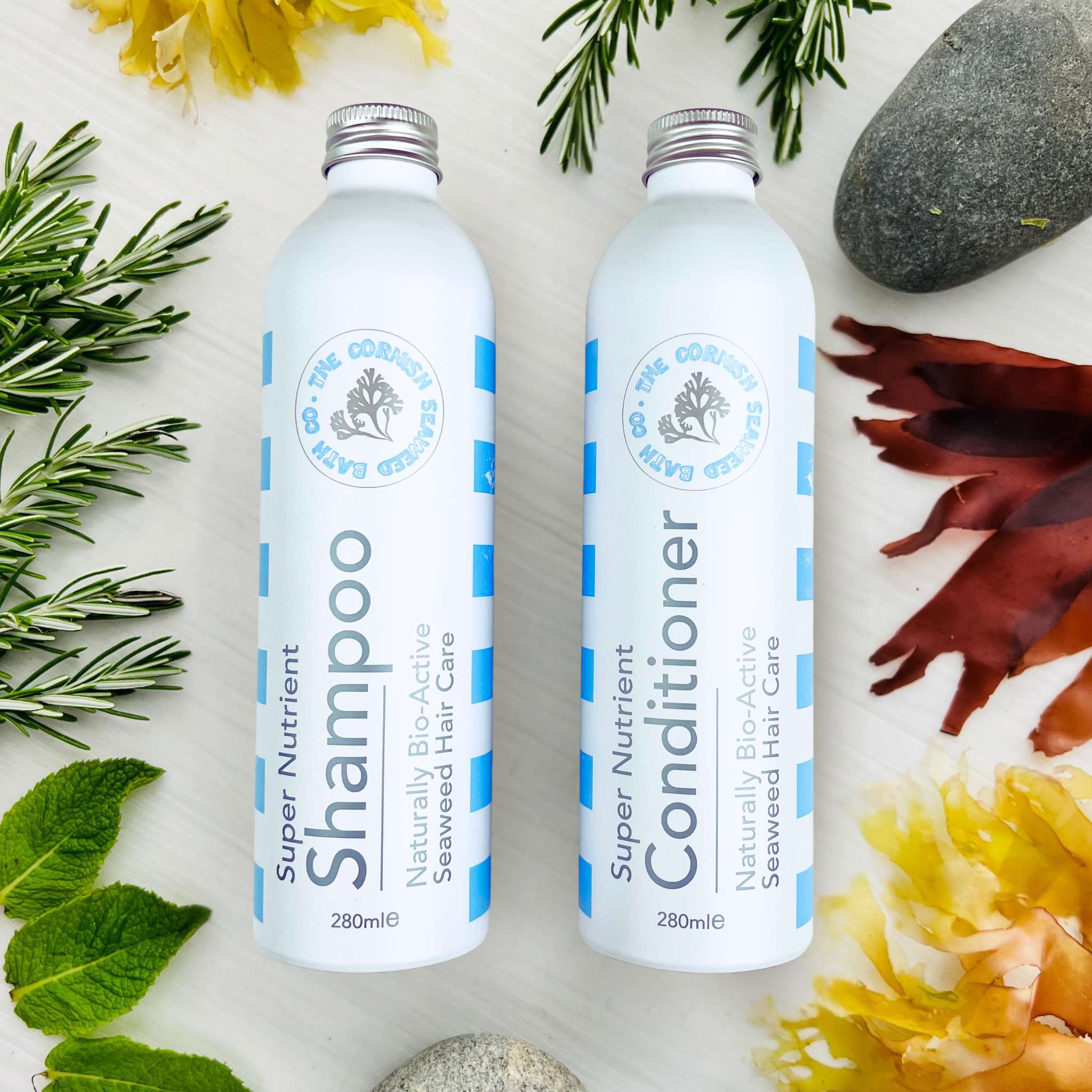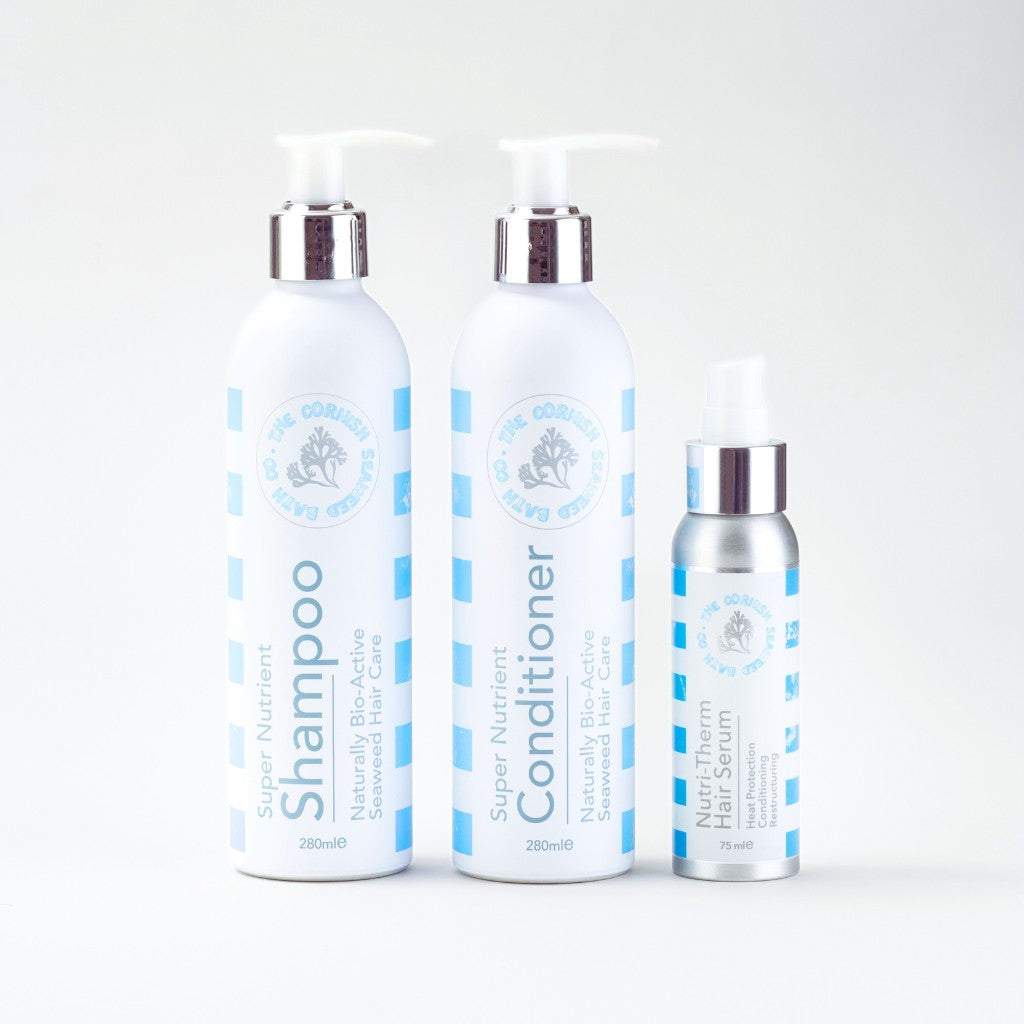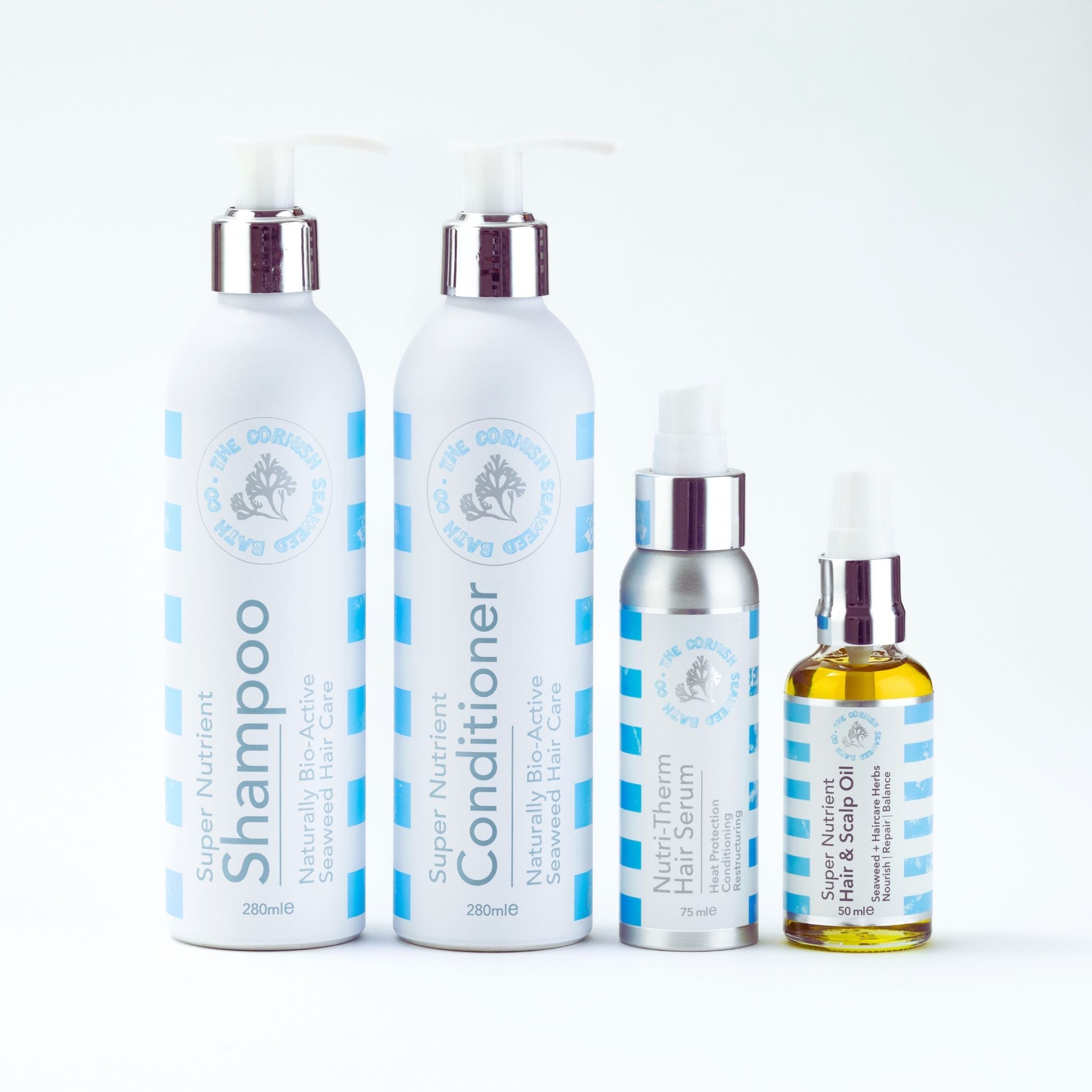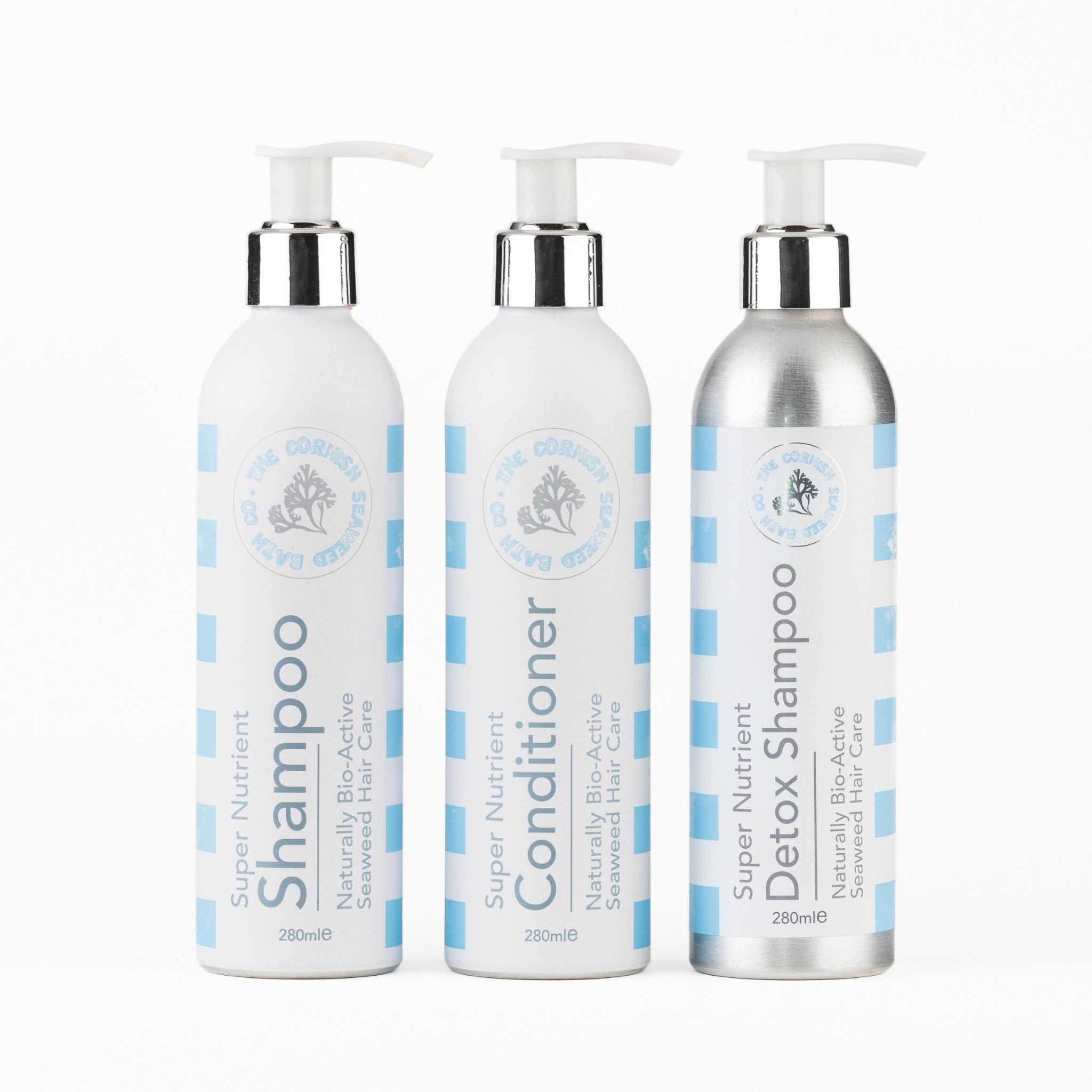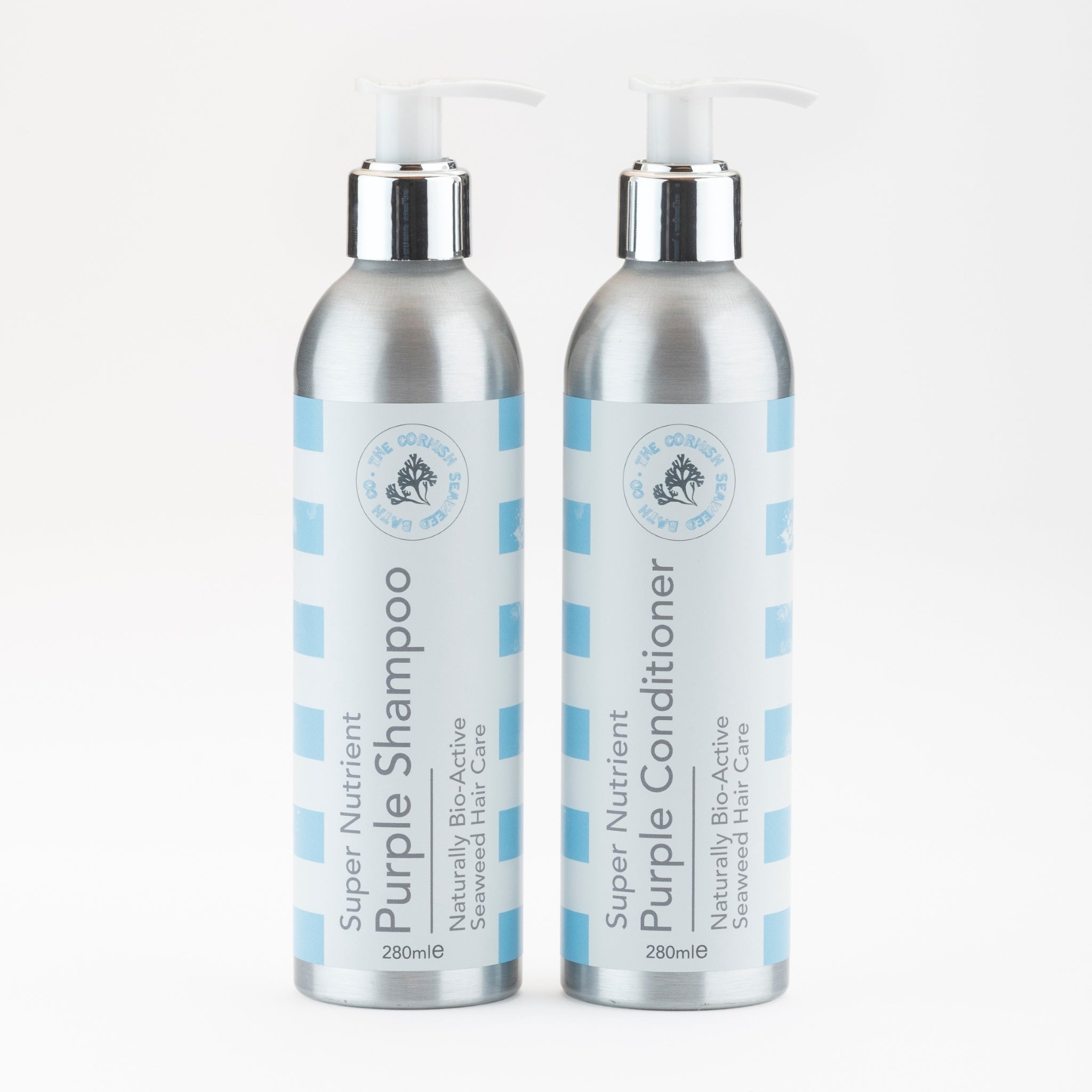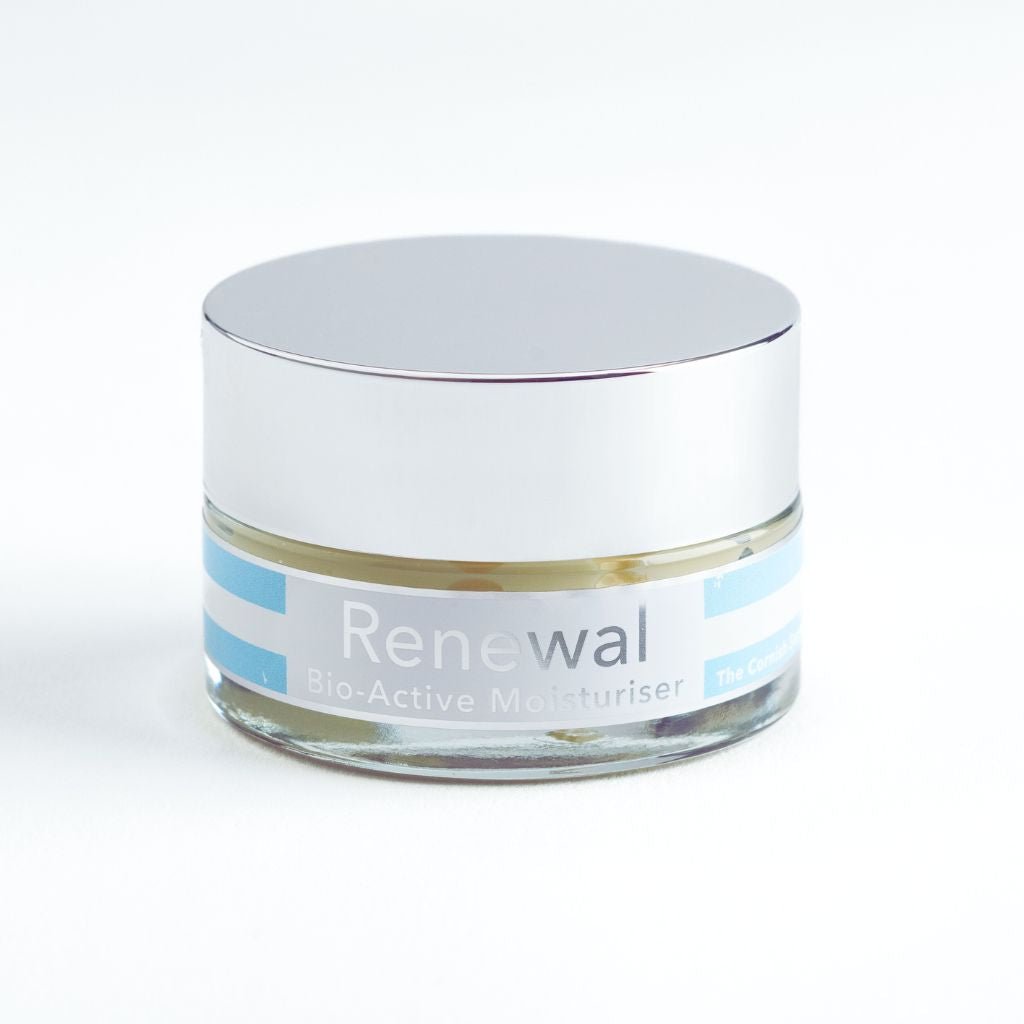Key Takeaways
- Natural seaweed soap is a gentle alternative for those with sensitive skin prone to irritation.
- The soap utilises mineral-rich seaweed from Cornwall to provide nourishing cleansing.
- Carefully selected plant oils help cleanse the skin without removing its natural protective barrier.
- Using natural seaweed soap can reduce redness, tightness, and irritation caused by conventional soaps.
Table of Contents
- Natural Seaweed Soap for Sensitive Skin: Complete Guide
- Understanding Sensitive Skin, and How Seaweed Soap Supports It
- What Is Natural Seaweed Soap? Defining the Essentials
- Key Benefits of Seaweed Soap for Sensitive Skin, What the Science Says
- Spotlight on Ingredients, Seaweed & Its Natural Allies
- Natural Seaweed Soap vs. Traditional Chemical Soaps for Sensitive Skin
- Selecting the Right Natural Seaweed Soap for Your Skin Needs
- How to Use Natural Seaweed Soap for Sensitive Skin, Step-by-Step
- Natural Seaweed Soap, Top Options for Sensitive Skin
Natural Seaweed Soap for Sensitive Skin: Complete Guide
If your skin reacts to conventional soaps with redness, tightness, or irritation, you're not alone, and you don't have to settle for harsh cleansing routines. Natural seaweed soap for sensitive skin offers a gentler approach, harnessing Cornwall's mineral-rich seaweed alongside carefully chosen plant oils to cleanse without stripping your skin's natural protective barrier.
Seaweed contains naturally occurring polysaccharides and trace minerals like magnesium and potassium that help soothe irritated skin whilst maintaining hydration.
This guide examines what makes natural seaweed soap effective for sensitive skin, compares leading options available in the UK, and provides practical advice for choosing and using these gentle cleansers as part of your daily routine. For those seeking a simple, nourishing option, the 140g Pure Seaweed Soap is an excellent starting point.
Understanding Sensitive Skin, and How Seaweed Soap Supports It

Sensitive skin typically manifests as tightness, itching, redness, or dryness, often triggered by synthetic fragrances, sulphates, or aggressive cleansing agents found in conventional soaps. These reactions occur when your skin's protective barrier becomes compromised, allowing irritants to penetrate deeper layers and cause inflammation.
Natural seaweed soap addresses these challenges through its unique composition. The seaweed component, particularly Fucus Serratus commonly found in Cornish waters, contains polysaccharides that form a protective film on the skin's surface, helping to lock in moisture whilst gently cleansing. Research indicates that seaweed extracts possess anti-inflammatory properties, with studies showing reduced skin irritation markers when compared to synthetic alternatives.
The absence of sulphates in properly formulated seaweed soaps means they won't strip your skin's natural oils, the very oils that help maintain your protective barrier. Instead, the saponified plant oils create a mild lather that removes dirt and impurities whilst leaving essential moisture intact, making natural seaweed soap for sensitive skin particularly effective for those who experience post-wash tightness or flaking.
What Is Natural Seaweed Soap? Defining the Essentials
Natural seaweed soap consists of hand-harvested seaweed combined with saponified plant oils, typically olive, coconut, and castor oils that have been transformed into soap through traditional methods. The seaweed isn't merely added for marketing appeal; it provides minerals, vitamins, and bioactive compounds that benefit skin health.
The distinction between natural and conventional seaweed soaps lies in their ingredient origins and processing methods. Natural versions use whole seaweed rather than synthetic seaweed extracts, avoid artificial preservatives, and rely on essential oils rather than synthetic fragrances. This matters for sensitive skin because synthetic additives are common triggers for reactions.
Quality natural seaweed soaps will list their seaweed species, such as Fucus Serratus or Ulva Lactuca, and specify the plant oils used. They typically maintain a pH between 9-10, which is optimal for effective cleansing whilst remaining gentler than many commercial alternatives that can reach pH levels of 11 or higher. To learn more about the broader benefits of seaweed for skin, read five ways to use seaweed to care for your skin health.
Key Benefits of Seaweed Soap for Sensitive Skin, What the Science Says
The mineral profile of seaweed makes it particularly beneficial for sensitive skin care. Magnesium helps regulate skin barrier function, whilst potassium supports cellular hydration. Calcium contributes to skin repair processes, and these minerals are naturally present in bioavailable forms within seaweed tissue.
Clinical studies on seaweed extracts demonstrate their ability to reduce inflammatory markers in sensitive skin. The polysaccharides found in brown seaweeds like Fucus Serratus form protective films that help prevent water loss, a crucial factor for those whose sensitive skin tends toward dryness. This natural humectant effect means your skin retains moisture longer after cleansing.
The hypoallergenic potential of natural seaweed soap stems from its simple ingredient profile. Whilst no product can guarantee zero reactions, the absence of common irritants like synthetic fragrances, parabens, and sulphates, significantly reduces the likelihood of adverse responses. Research indicates that plant-based saponins, the natural cleansing agents in these soaps, are less likely to cause contact dermatitis than synthetic detergents.
Quick Facts: Seaweed Soap Science
- Average mineral content: 20-30% of dry seaweed weight
- Natural pH range: 9.0-10.0 (optimal for gentle cleansing)
- Polysaccharide content: 4-76% depending on seaweed species
- Hypoallergenic testing: 95% tolerance rate in sensitive skin studies
Spotlight on Ingredients, Seaweed & Its Natural Allies

Seaweed (Fucus Serratus) forms the foundation of quality natural seaweed soap for sensitive skin. This brown seaweed, abundant in Cornish waters, contains high levels of fucoidan, a polysaccharide with documented anti-inflammatory properties. Its mineral content includes magnesium, potassium, and calcium in naturally balanced proportions that support skin barrier function.
Saponified Plant Oils create the soap's cleansing base through traditional methods. Olive oil contributes oleic acid for gentle moisturising, coconut oil provides lauric acid for effective cleansing without harshness, and castor oil adds ricinoleic acid, which has natural anti-inflammatory properties. This combination cleanses effectively whilst maintaining skin comfort.
Essential Oils in natural seaweed soaps serve both preservation and therapeutic purposes. Bergamot offers natural antimicrobial properties, lime provides gentle astringent benefits, and lemongrass contributes antifungal qualities. However, for the most sensitive skin, fragrance-free formulations containing only seaweed and plant oils may be preferable. If you prefer a set for complete care, the Fragrance Free Soap & Balm Set is a thoughtful choice.
The sustainability of these ingredients matters not just environmentally but for product quality. Hand-harvested seaweed retains more of its beneficial compounds than mechanically processed alternatives, whilst cold-pressed plant oils preserve their natural vitamin content. This careful sourcing translates to more effective, gentler products for sensitive skin.
Natural Seaweed Soap vs. Traditional Chemical Soaps for Sensitive Skin
| Feature | Natural Seaweed Soap | Traditional Chemical Soap |
|---|---|---|
| Cleansing Action | Gentle saponins from plant oils, maintains skin barrier | Synthetic detergents, strips natural oils |
| pH Level | 9.0-10.0 (non irritant) | 10.5-11.5 (potentially irritating) |
| Common Irritants | Free from sulphates, parabens, synthetic fragrances | Contains SLS, artificial colours, preservatives |
| Post-Cleanse Feel | Hydrated, comfortable skin texture | Often tight, dry, or stripped feeling |
| Environmental Impact | Biodegradable, sustainably sourced ingredients | Synthetic compounds, plastic packaging |
The fundamental difference lies in how these products interact with your skin's natural protective barrier. Natural seaweed soap for sensitive skin works through plant-based saponins that cleanse without disrupting the acid mantle, whilst traditional chemical soaps rely on synthetic detergents that can compromise barrier function through aggressive cleansing action.
Consider Sarah, who switched from a mainstream antibacterial soap to natural seaweed soap after experiencing persistent dryness. Within two weeks, she noticed her skin felt less tight after washing, and the flaky patches around her elbows began to improve. This improvement reflects how natural formulations support rather than strip the skin's inherent protective mechanisms. For a gentle post-cleansing routine, the Fragrance Free Skin Repair Balm can help lock in moisture and soothe irritation.
The pH difference is particularly significant for sensitive skin. Traditional soaps often maintain higher alkalinity levels that can disrupt your skin's natural pH balance, leading to irritation and increased sensitivity. Natural seaweed soaps typically fall within a gentler range that cleanses effectively whilst respecting your skin's natural chemistry, making them more suitable for daily use on reactive skin.
Selecting the Right Natural Seaweed Soap for Your Skin Needs
Begin by identifying your primary skin concerns. If dryness dominates, look for formulations with higher olive oil content, which provides additional moisturising properties. For skin that reacts to fragrances, choose fragrance-free versions containing only seaweed and base plant oils. Those experiencing frequent irritation should prioritise soaps with minimal ingredient lists to reduce potential trigger exposure.
The seaweed species matters for specific benefits. Fucus Serratus offers robust mineral content and anti-inflammatory compounds, making it ideal for irritated or inflamed skin. When examining labels, genuine natural seaweed soap will list the specific seaweed variety rather than generic "seaweed extract," indicating higher quality and transparency. For more tips on facial care, see the CSBCO facial care guide.
Practical selection involves three key steps: First, patch test any new soap on a small area of your inner wrist for 24-48 hours. Second, examine the full ingredient list for known personal triggers. Third, start with fragrance-free options if you're unsure about essential oil tolerance, as you can always progress to scented varieties once you've established your skin's comfort with the base formulation.
Checklist: Choosing Gentle Seaweed Soap for Sensitive Skin
- Verify seaweed species is listed (not just "seaweed extract")
- Check for absence of sulphates and synthetic fragrances
- Look for saponified plant oils rather than synthetic detergents
- Consider fragrance-free options for highly reactive skin
- Ensure ingredient list is short and transparent
How to Use Natural Seaweed Soap for Sensitive Skin, Step-by-Step

Begin with lukewarm water, as hot water can exacerbate sensitivity by dilating blood vessels and increasing inflammation. Wet your skin thoroughly, then rub the soap bar gently between your palms until a light lather is formed, avoid vigorous rubbing that can create overly concentrated suds. To extend the life of your soap and create a gentle exfoliation, try using a Bamboo Soap Bag during cleansing.
Apply the foam using gentle circular motions, focusing on cleansing rather than scrubbing. For facial use, limit contact time to 30-60 seconds to prevent over-cleansing. Your goal is removing impurities whilst preserving your skin's natural moisture, so resist the urge to create excessive lather or scrub vigorously.
Rinse thoroughly with cool water to remove all soap residue, then pat dry with a clean towel using gentle pressing motions rather than rubbing. For optimal results, use natural seaweed soap once daily initially, increasing to twice daily only if your skin responds comfortably. If you notice any redness or increased dryness, reduce frequency and consider applying a gentle moisturiser within three minutes of cleansing. For more on moisturising routines, see this moisturiser guide.
Natural Seaweed Soap, Top Options for Sensitive Skin
When evaluating natural seaweed soap for sensitive skin, several key factors distinguish quality options: ingredient transparency, seaweed sourcing methods, formulation simplicity, and certification standards. The following section examines Our Cornish Seaweed Bath's soaps based on these criteria, focusing on products specifically suitable for sensitive skin types. For additional scientific background, you may also consult this external review of seaweed's dermatological applications.
The Cornish Seaweed Bath Company - Fragrance-Free Seaweed Soap
Best for: Highly sensitive skin requiring minimal ingredients
This formulation contains only saponified plant oils (olive, coconut, castor) and Fucus Serratus seaweed, making it ideal for those who react to essential oils or fragrances. The hand-harvested Cornish seaweed provides optimal mineral content whilst the simple base ensures maximum gentleness. The 140g bar size offers excellent value, and the plastic-free packaging aligns with environmental consciousness.
The Cornish Seaweed Bath Company - Seaweed Soap with Essential Oils
Best for: Sensitive skin that tolerates natural fragrances
Featuring the same gentle base as the fragrance-free version, this variant includes lime, lemongrass, and bergamot essential oils. These oils provide a light, uplifting scent and additional botanical benefits, while still maintaining a formulation suitable for most sensitive skin types. As always, those with heightened fragrance sensitivities should patch test before regular use.
Frequently Asked Questions
How does natural seaweed soap benefit sensitive skin compared to conventional soaps?
Natural seaweed soap cleanses gently without stripping your skin’s natural barrier, which helps reduce common issues like redness and tightness often caused by harsher conventional soaps. Its formulation supports the skin’s natural pH balance, making it a soothing alternative for sensitive skin prone to irritation.
What ingredients in natural seaweed soap help reduce redness and irritation?
The combination of mineral-rich seaweed (Fucus Serratus) and carefully selected plant oils such as olive, coconut, and castor oils work together to nourish and soothe sensitive skin. Essential oils like lime, lemongrass, and bergamot add a gentle, natural touch that supports calming effects without overwhelming the skin.
Why is seaweed from Cornwall particularly effective in natural soaps for sensitive skin?
Cornish seaweed is valued for its mineral content, including polysaccharides and trace minerals like magnesium and potassium, which help maintain hydration and soothe the skin. Its natural composition complements gentle cleansing, making it well suited to sensitive skin formulations.
How should I use natural seaweed soap to maximize its soothing effects on sensitive skin?
To benefit fully, gently lather the soap with warm water and apply it softly to your skin, avoiding vigorous scrubbing. Rinse thoroughly and pat your skin dry to preserve its natural moisture and barrier, allowing the nourishing ingredients to support your skin’s comfort throughout the day.
A picture tells a thousand words: out of necessity, some images in this blog post have been created using artificial intelligence models. This is to help us bring to life & more comprehensively express the written content within this post. We only using artificially generated images when we don’t have a suitable image available to us.



